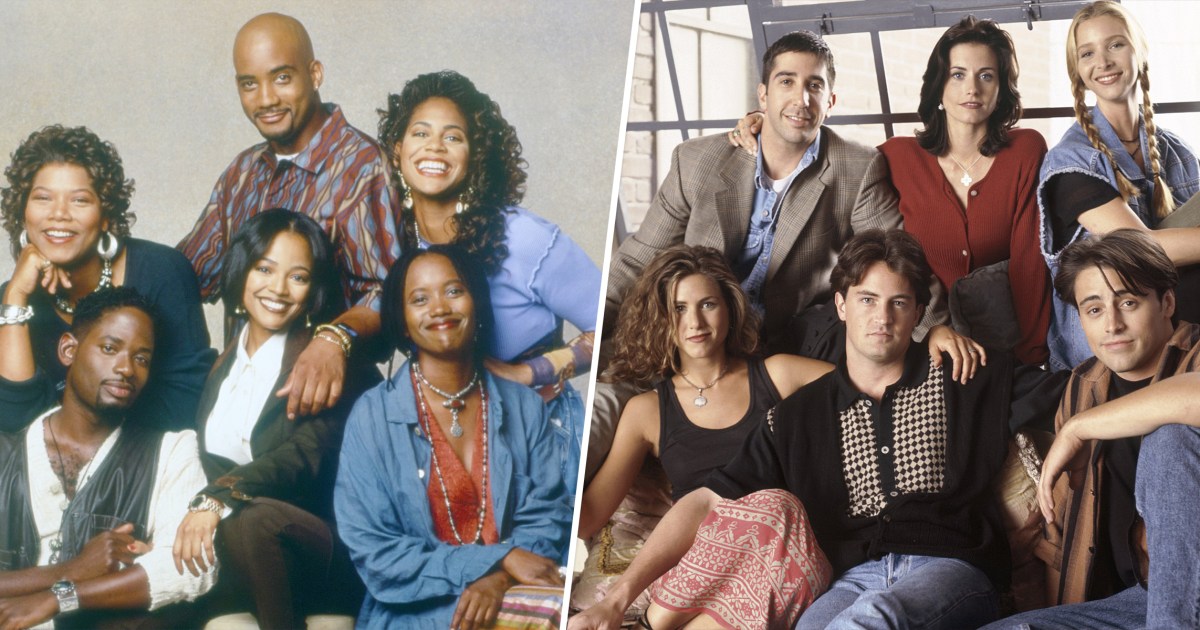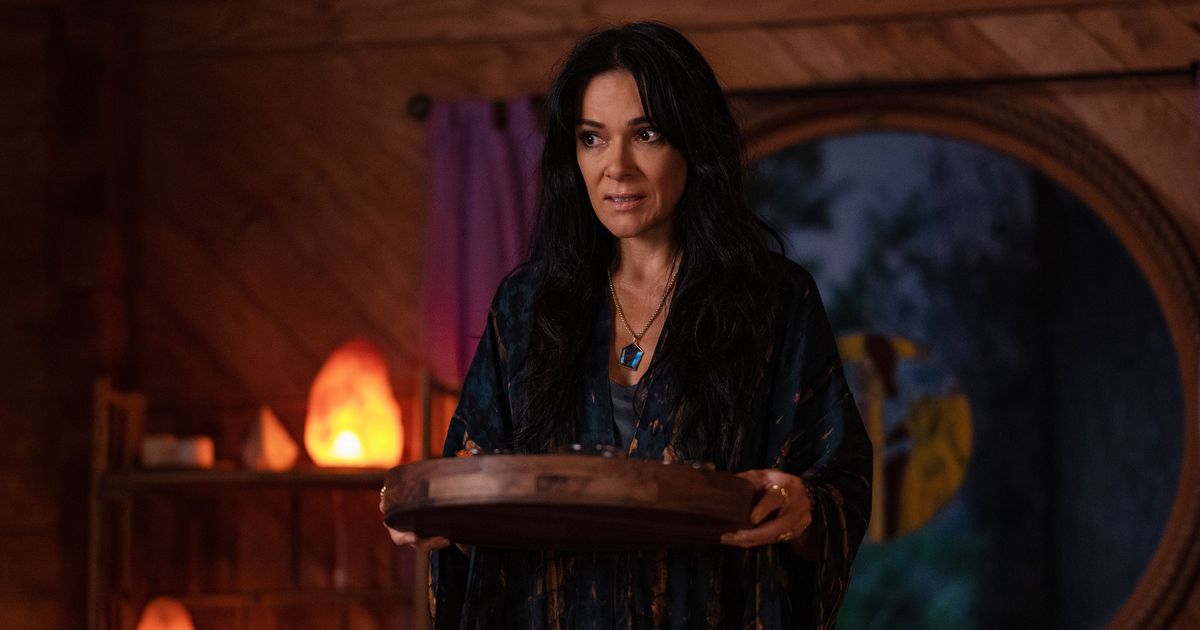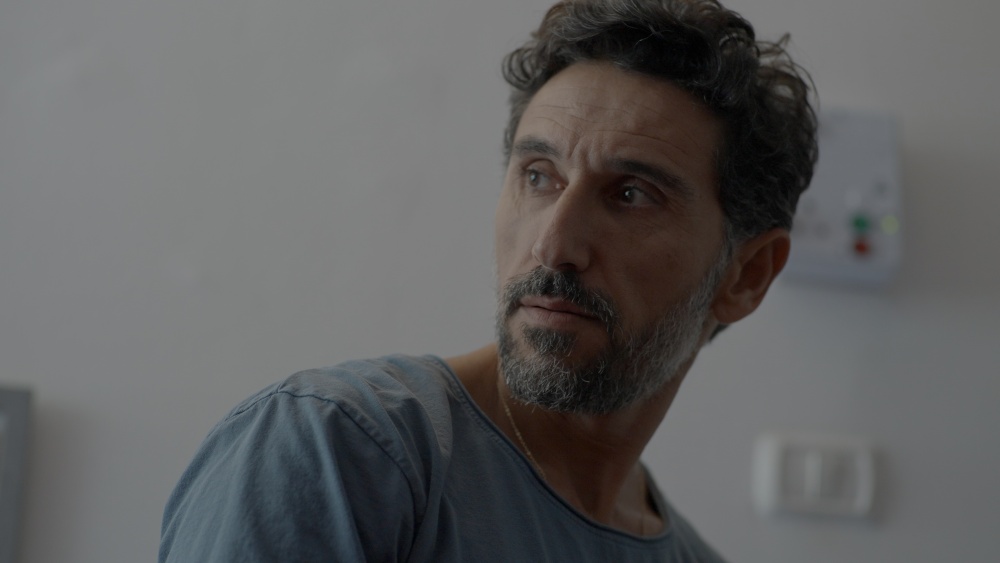Erika Alexander says the ‘Living Single’ and ‘Friends’ needs ‘a larger conversation’

Erika Alexander says there needs to be “a larger conversation” about the ongoing comparisons between “Living Single” and “Friends.”
Alexander, who played attorney Maxine Shaw on “Living Single,” is reacting to Jennifer Aniston’s comments about “Friends” now being considered offensive due to more “sensitivity” and a new generation.
“I don’t think anything about it is offensive,” Alexander tells TODAY.com. “It’s actually a fantastic show with a really good cast. I’ve enjoyed it on occasion.”
Back in March, Aniston’s comments about “Friends” caused quite a stir online, with some “Living Single” fans saying that the only thing they found offensive about the series was that it was “a direct rip-off” from Alexander’s show. The “Living Single” alum says the newly reignited comparison debate about the two series is only a small part of the discussion that needs to be had.
“What I do think is that we have to have a larger conversation about how history is measured and for kids to tell those stories,” she says.
To Alexander’s point, the two shows have been compared for many years because of their similarities.
“Living Single,” which premiered in 1993 on Fox, aired for five seasons and ended in 1998. It starred Alexander, Queen Latifah (Khadijah), Kim Fields (Regine), Kim Cole (Synclaire), John Henton (Overton), and TC Carson (Kyle) and followed them as they navigated the ins and outs of living in Brooklyn while occupying the same brownstone.
Meanwhile, “Friends” premiered in 1994 and ended in 2004 after 10 seasons. It starred Aniston (Rachel), David Schwimmer (Ross), Courteney Cox (Monica), Matthew Perry (Chandler), Lisa Kudrow (Phoebe) and Matt LeBlanc (Joey) and also followed their lives as six young men and women who lived in the same apartment complex, although in Manhattan.
Though the shows had similar cast structures and storylines, Alexander says the the shows did not receive the same support from their respective studios.
“We can’t say that back in the day, when that Black cast was in that show, including myself, that we had the same amount of branding and promotion, and leverage that they were putting on all the other shows underneath the same umbrella,” she says. “It was totally different.”
She also says that how studios go about deciding which projects are greenlit into production and their specific budgets, warrants further scrutiny.
“You can see where the budgets went, where you invest, and where you don’t invest — where you take out,” she says. “That needs to have not only a conversation, but an investigation. Because if we can see it, we don’t have to repeat it. We can also know how and why those budgets went that way.”
The production budget for the final season of “Friends” was $10 million per episode, according to information obtained by NBC News. Of the $10 million budget, each of the six main cast members received $1 million per episode, according to Yahoo Finance.
The production budget for each of the five seasons of “Living Single” was just over $1 million per episode, show creator Yvette Lee Bowser tells TODAY.com. Show budgets typically increase with every new season renewal, but Bowser says that wasn’t the case for her show.
“We had tremendous budgetary limitations,” she says. “We were on a particularly lean budget and the reason we were given that was we were still part of a startup network, Fox, (and it) was still claiming new status.”
Fox was founded in 1986. Living Single premiered seven years later. NBC was founded in 1926. “Friends” premiered 68 years later.
Alexander tells TODAY.com whether she holds resentment for “Friends” being credited for what “Living Single” pioneered.
“No, not at all because that’s been the case all the time,” she says. “We created blues, rock ’n’ roll, all these new American art forms, and many of those people did not get their due in their time or effort. They died without any sort of honorifics.”
She says the only reason she still discusses what happened with the two TV shows is so it’s noted for the record.
“It’s important that we know and we set the record straight, not just for Black people in the community, but for the wider American community,” she says.










